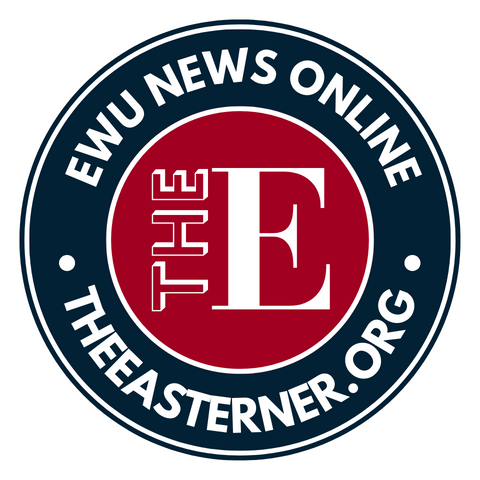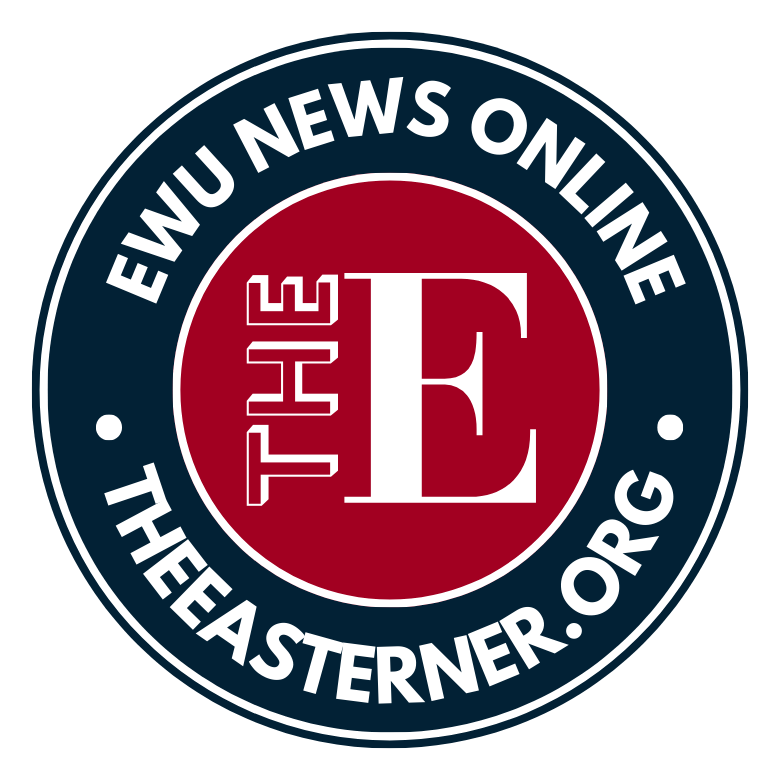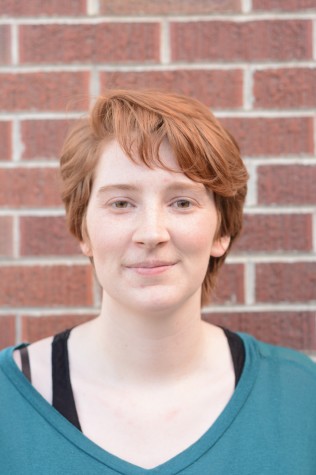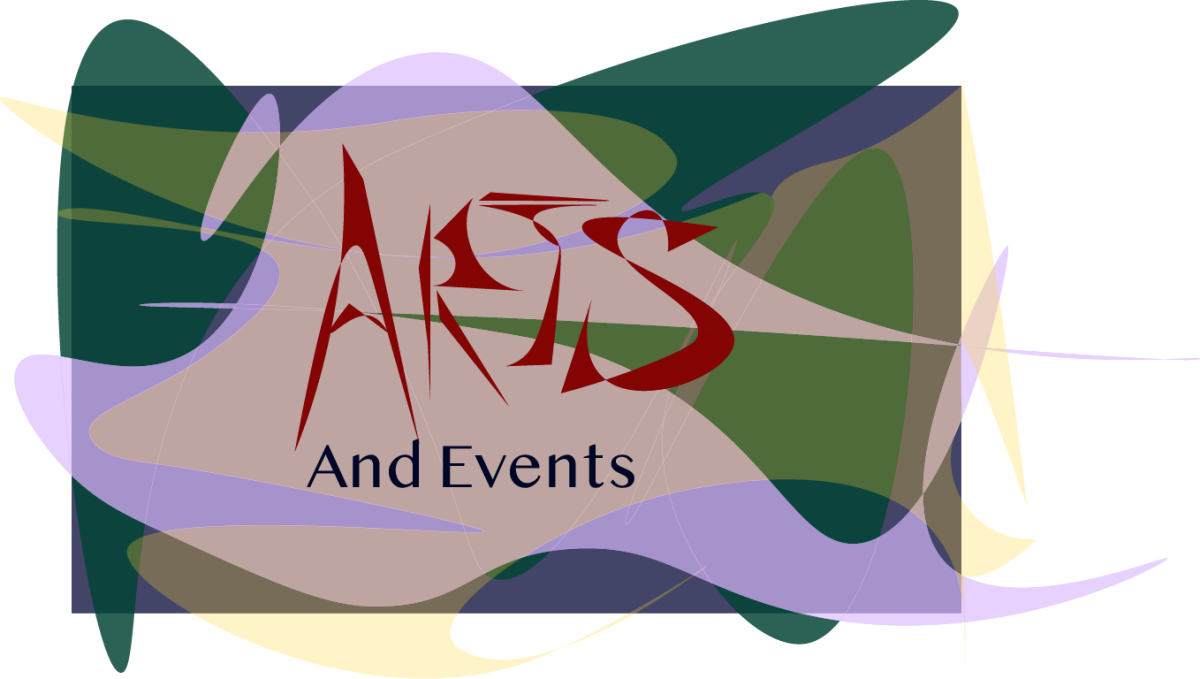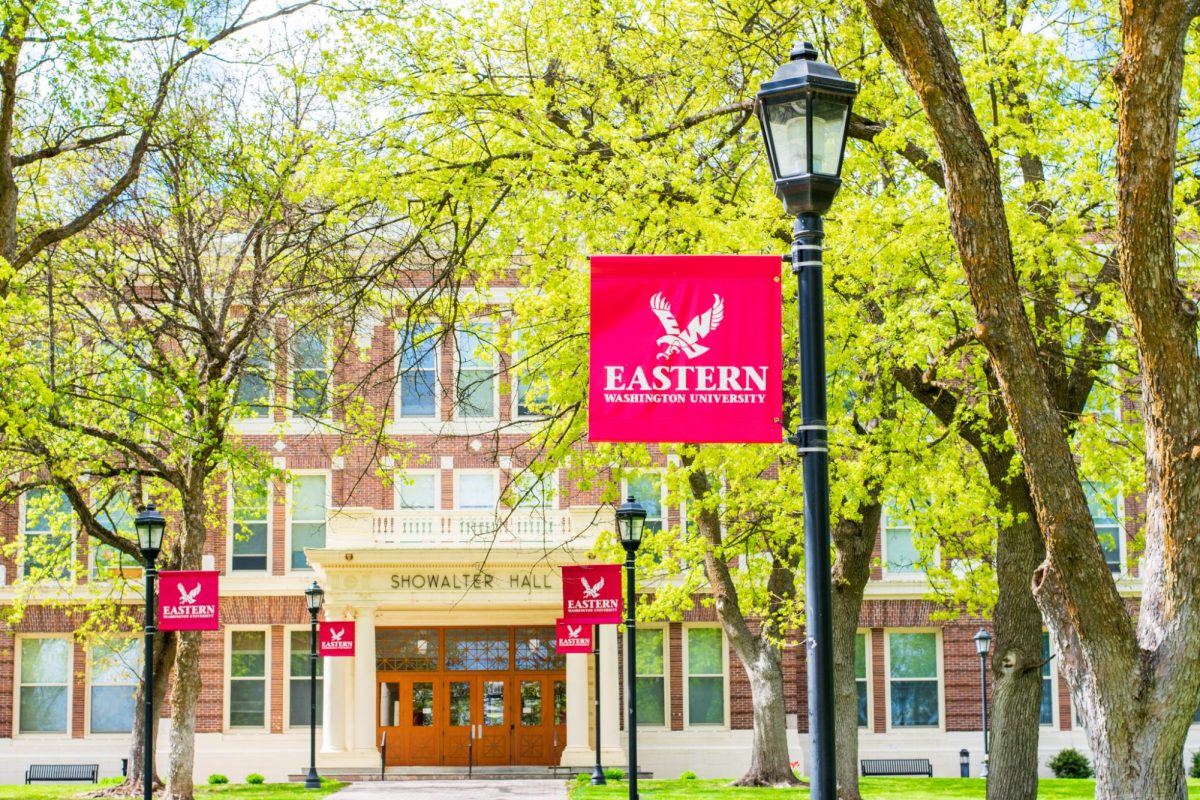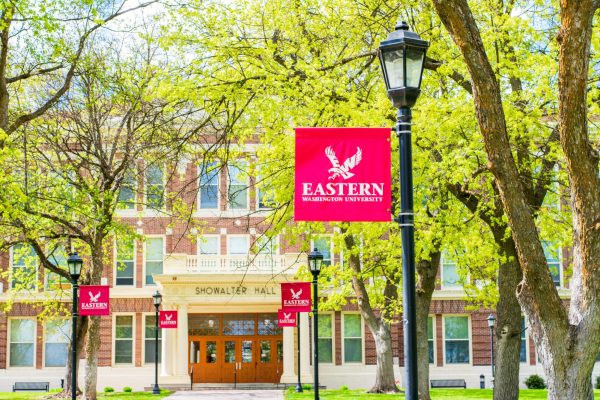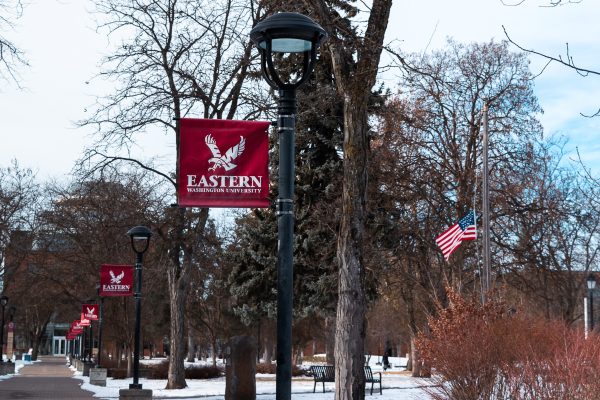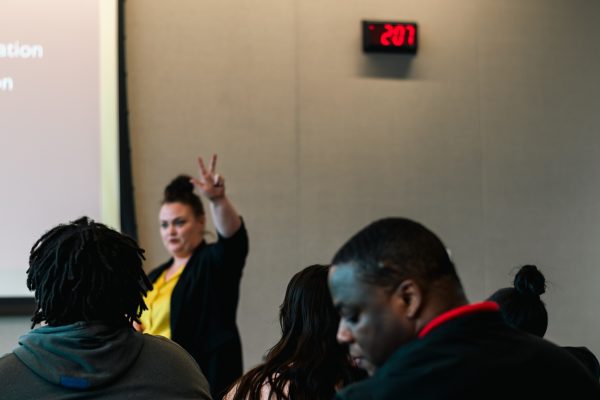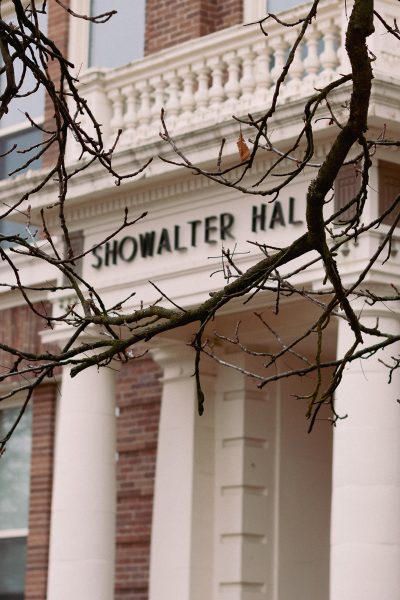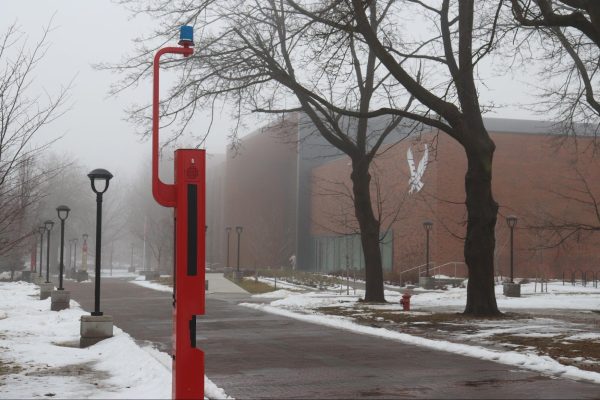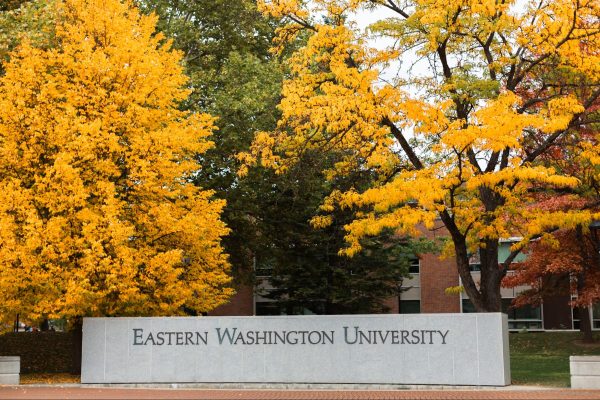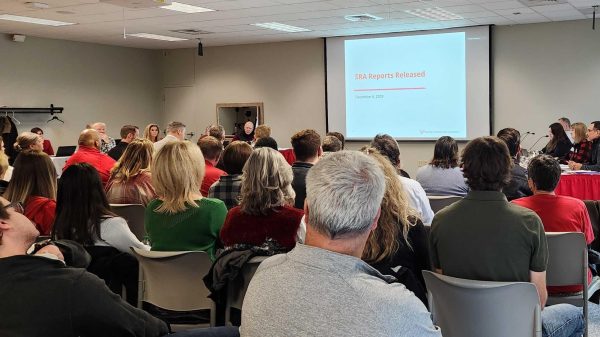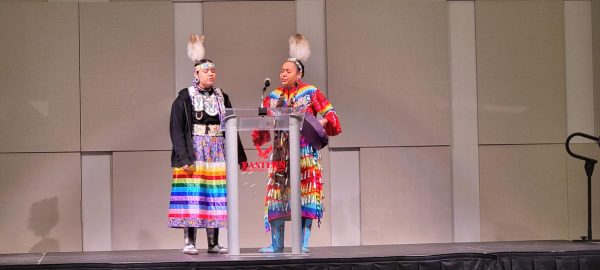EWU student advances to National Poetry Slam
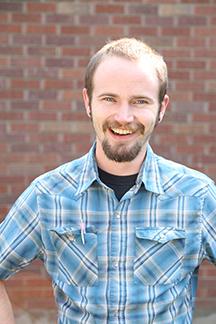
Kurt Olson, chief copy editor 2011-2013
June 24, 2013
Kurt Olson, Eastern Washington University student and chief copy editor for The Easterner, finished second in the Spokane Slam and gained a place on Team Spokane for the National Poetry Slam in Boston on Aug. 13. Although Olson began writing short stories in first grade, he was not introduced to performance poetry until high school.
“These people were talking about filthy things to say. And I thought ‘This is so different and wild.’ And I didn’t know that there were competitions for it. I just thought it was a new way to do poetry,” he said.
Olson moved to Spokane in 2007 and entered his first poetry slam competition, winning second place. Since then, he was hooked.
A poetry slam is a competitive poetry event that started in the 1980s by a Chicago man named Mark Smith. Poetry slams are judged by random audience members. They get score cards that range from zero to 10 and poets are scored based on performance and originality. A standard performance poem is typically three minutes without the use of props, instruments or costumes.
The Spokane Grand Slam competition took place mid-May. Throughout the year, slams are held every two weeks, and poets earn points to place in competitions. “The finals are three rounds, so after the first round I was in sixth place. Then I came up tied for fourth in the second round and by the end of the third round I made second,” said Olson.
Teams from all over the U.S., and some from Canada, will be competing in the even from Aug. 13 to 17. It was described as a combination of a championship tournament, poetry summer camp and traveling exhibition, according to the official website for the National Poetry Slam.
A team is composed of four or five members. Team Spokane is comprised of Olson, Chris Cook, Mark Anderson, Jazlyn Jacobs and Lauren Gilmore. Isaac Grambo, slam master of Spokane Poetry Slam, said he was excited to see how the groups does in this year’s competition.
“After a solid year of competition, this is the first team Spokane is sending to the National Poetry Slam since 2010, and I couldn’t be more proud of Spokane and of [Olson], [Cook], [Anderson], [Jacobs] and [Gilmore],” Grambo said.
Grambo said he is looking forward to the group piece the team might come up with for nationals.
Anderson, an EWU alumnus, said that during the preliminaries Team Spokane selects one member to be the primary performer for that round and that member can choose to have up to four other members of Team Spokane on stage with the primary performer to add a beat, dance, clap or add any other element to the poem being performed. Anderson said that he will be offering at least one of his preliminary spots to a group performance, if not both.
“I love the fact that this team represents the diversity of our scene so well. From very young to more seasoned, from literary craft to raw unbridled talent, from both male and female poets, this team is a postcard telling everyone exactly what’s right with poetry,” said Grambo.
Grambo said, “[Team Spokane] is going to make a lot of people fall in love with them. The rest of the world is going to be blown away.”
The Individual World Poetry Slam is coming to Spokane in October, and Team Spokane will increase the influence of Spokane on the slam poetry community. The individual World Poetry Slam is a three day competition involving about 80 competitors from across the U.S. This event, unlike the National Poetry Slam that crowns a team for the year, selects and individual champion to represent the U.S. in the World Poetry Cup, according to Anderson.
Olson says he will continue to perform poetry slams, even though he has tried to walk away in the past.
“Sometimes I like to get on stage and just yell all my feelings out,” he said.
Grambo anticipates seeing great things come from Team Spokane’s performance at nationals, not only for the team but for Olson as well.
“When [Olson] is present at a slam or an open mic, the mood changes. It lifts. It rises and falls with the poems. He’s attentive and supportive of each and every reader. He is visibly, vocally and viscerally invested in every performance and that brings everyone in the audience to the poetry, even when he’s not on stage.”
